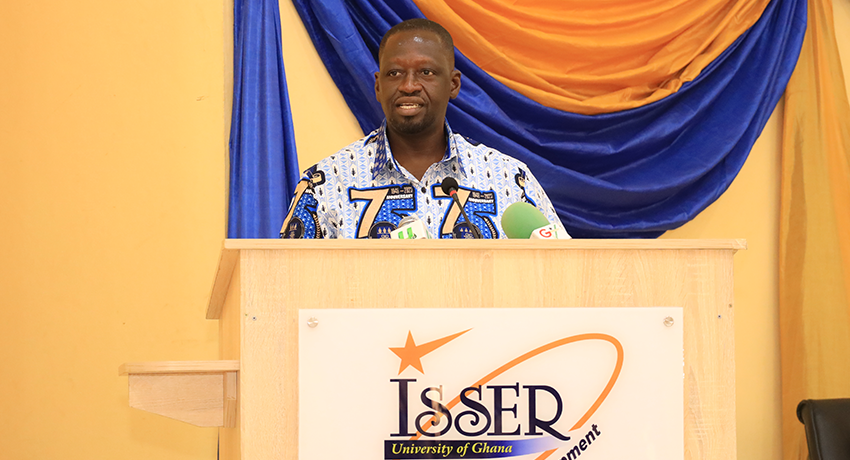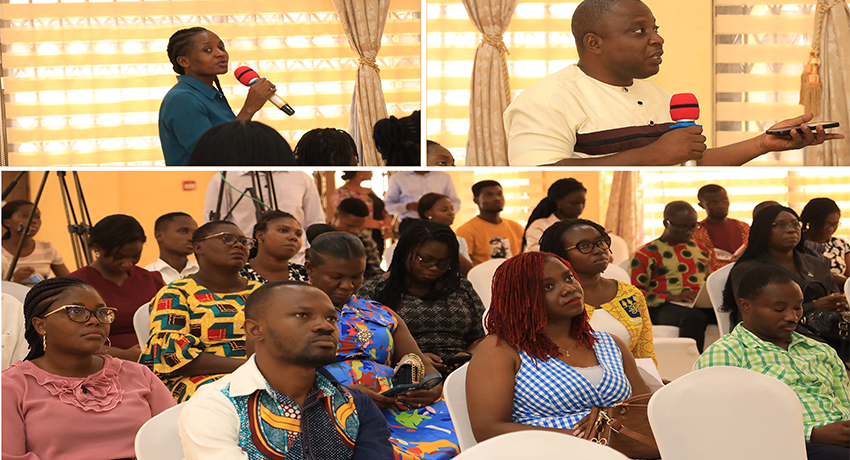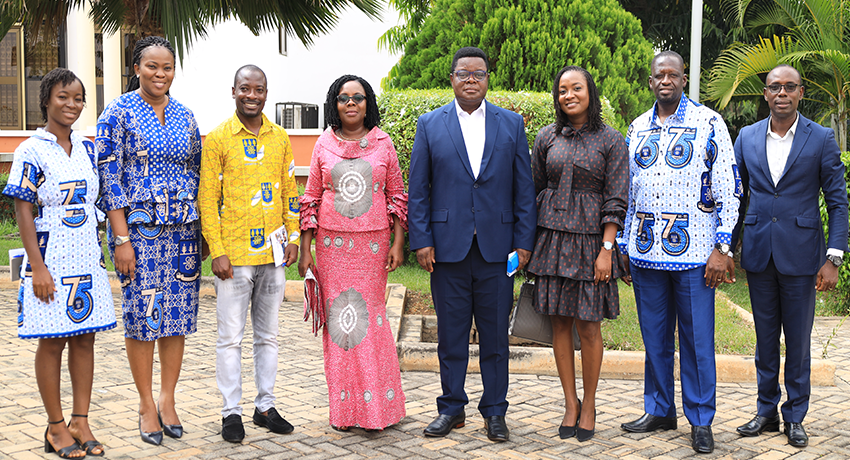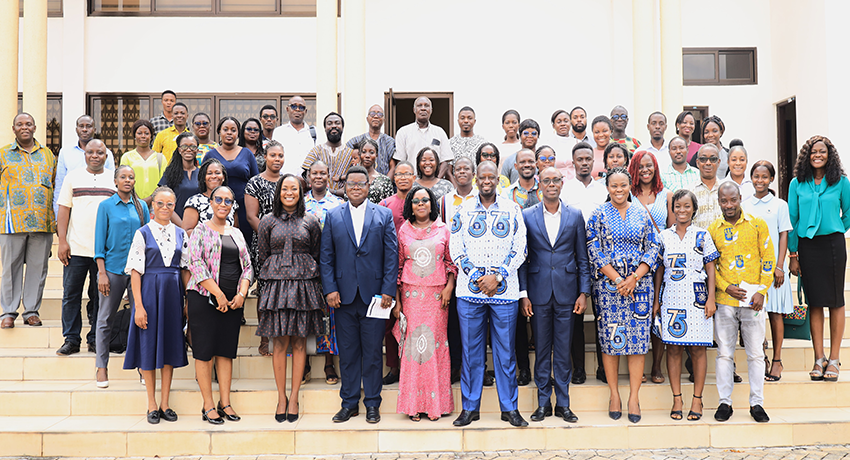The workshop brought together stakeholders from the energy sector, including representatives from academia, public and private organizations, as well as reporters from English-speaking and local language media outlets.
A workshop held to disseminate the learning outcomes from the Modern Energy Cooking Services (MECS) Phase II project has highlighted electric cooking (e-cooking), especially, with the Electric Pressure Cooker (EPC), as a cost-effective, safe and healthy alternative to the traditional cooking fuel choices. Characterised by insightful evidence and submissions, the workshop was valuable in demystifying unhelpful beliefs and promoting e-cooking as a solution for accelerating progress towards achieving access to affordable, reliable and clean energy (SDG 7) and other development objectives.
Held on 7th December, 2023 a time when the UN climate change conference, COP28 was ongoing, the workshop provided a well-timed context to disseminate the findings of MECS Phase II and highlight the importance of local-level actions in achieving global objectives.
“Without us acting locally on the clean cooking front, we will not be able to achieve the Sustainable Development Goals (SDGs) 3 (Good health and wellbeing); 7 (Access to affordable, reliable, sustainable, and modern energy for all); 11 (Sustainable cities and communities); 12 (Sustainable consumption and production patterns); and 13 (Climate Action) by 2030,” said Dr. Simon Bawakyillenuo, Principal Investigator.
“...clean cooking is not just about preparing meals, it is about building resilience and supporting livelihood,” he added.

E-cook technologies incur least cost, and have zero emissions
Presenting the findings, the ISSER MECS research team member, Mr. Innocent Agbelie noted that e-cook technologies incurred the least cost in terms of fuel consumed, and also recorded zero emissions, unlike liquefied petroleum gas (LPG) and charcoal which emitted harmful gases and harmful fine particulate matter (PM2.5).
Citing several studies, the chairperson, Prof. Nana Charlotte Wrigley-Asante, Head of the Department of Geography and Resource Development at the University of Ghana, highlighted the huge costs -- in terms of ill-health, health-related expenses and productivity loss, especially for women -- associated with using polluting fuels and technologies like wood and charcoal.
She commended the project team and ISSER for the study which builds on research and other initiatives that seek to unearth the willingness of households to adopt e-cooking technologies like the EPC. “This is clearly in line with the Sustainable Development Goal (SDG)7 that focuses on affordable, reliable and clean energy for all,” she said.
An energy consultant and World Bank representative, Mr. Alex Donyinah expressed his excitement to be part of the “great initiative.” He shared that the World Bank has a global presence in the energy space and engagement in most of the energy access deficit countries, including Ghana. He highlighted his organisation’s continued commitment to supporting clean and modern energy solutions, saying “…the World Bank is interested in working with the Government of Ghana in partnership with organizations like ISSER to fulfil the country’s goal of universal access to modern energy solution by 2030.”
For his part Prof. Peter Quartey, the Director of ISSER, spoke about the importance of the topic and its potential to positively transform lives. He underlined the need to ensure inclusive dissemination, including communicating the research outcomes not only in English but also in local languages to ensure non-English-speaking communities are not excluded. He also alluded to the need to boost the country’s electricity generation, especially from renewable energy sources, to absorb the growth in demand that would result from increased adoption of e-cooking technologies.

An engaging forum
Insightful presentations and submissions aside, the event featured a variety of activities that allowed participants to engage deeply with the topic. One of these was the documentary on the cooking diaries, featuring cooking experiments of selected dishes with electricity, charcoal, and LPG fuels that was conducted as part of the project. Another was an interactive poll that saw participants respond to specific questions that sought to assess their willingness to adopt e-cooking and be advocates of same. There was also an extensive interaction session where participants made pertinent interventions, helping enrich the learning experience.

Key recommendations
As the final dissemination event of the MECS Phase - II, the workshop provided a platform to share and engage the media and other key stakeholders on the findings and recommendations, helping extend the project’s impact on society. Here are some of the study’s recommendations highlighted at the workshop:
· De-mystify the popular belief that ‘e-cooking is too expensive’
- Practical education, demonstration and awareness campaigns
· Develop e-Cook technology access programmes
- Promote e-cooking like the LPG and ICS programmes
- Maintain affordable electricity tariff to motivate adoption
· Prevent substandard products from entering the market
· If it must be e-cooking, it must be done with EPC or better
· Localize the eCook technologies to meet household demands.
- Engage local and international manufacturers to improve on the existing eCook technology designs
· Stacking transition should be along eCook technologies rather than traditional fuels
· Partnership for e-cooking development.
· Increase energy generation from renewable sources
The workshop was held at the ISSER Conference Centre, drawing media representatives and energy sector stakeholders from academia, and public and private organisations.
About the project
The Modern Energy Cooking Services (MECS) Project broadly seeks to facilitate households’ transition to modern cooking fuels, away from traditional solid fuels. MECS Phase I (2020-2021) sought to understand and build local knowledge on the dynamics of cooking behaviours and cooking energy services amongst various stakeholders in Ghana. MECS Phase-II (2022-2023), supported by the World Bank, seeks to demonstrate empirically through experiments and surveys the efficiency, financial, health, and environmental benefits, as well as the overall livelihood improvements associated with modern energy cooking services, especially e-cooking.

- Log in to post comments

